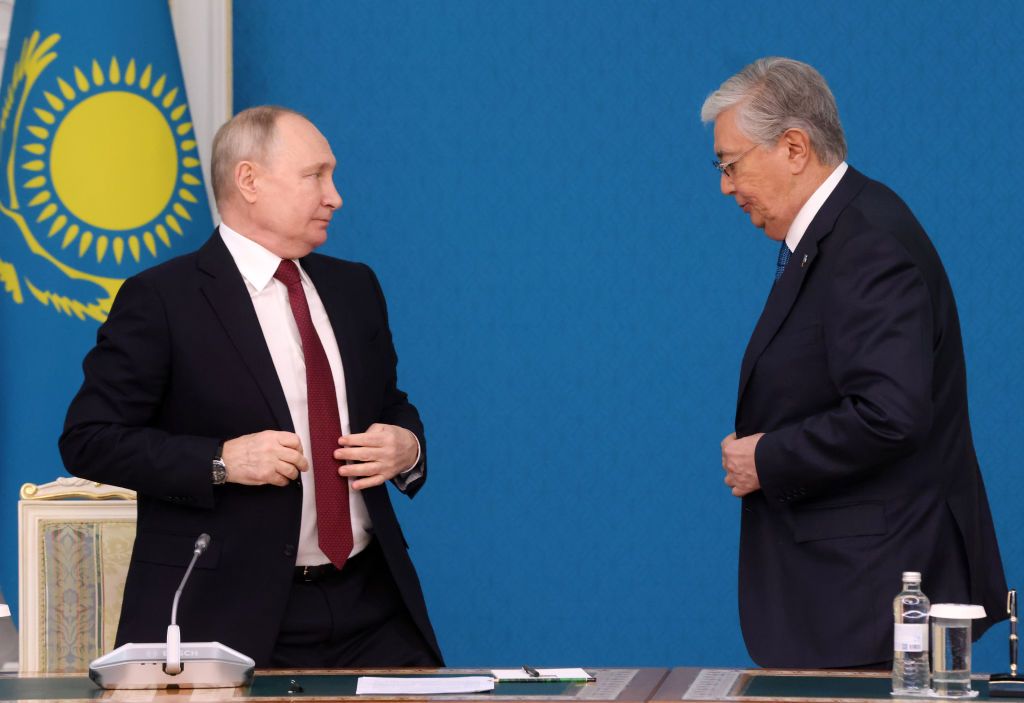'Russia cannot be defeated,' Kazakh President Tokayev says

Kazakh President Kassym-Jomart Tokayev told German Chancellor Olaf Scholz during a visit to Astana on Sept. 16 that "Russia cannot be defeated in the military sense."
Despite Astana's historically close ties to Moscow, Tokayev has taken a cautious approach to the full-scale war, refusing to recognize the legitimacy of Russia's illegal annexation of Ukrainian territories in 2022. At the same time, Kazakhstan has declined to abandon its long-standing relationship with Russia.
"It is a fact that Russia cannot be defeated in the military sense," Tokayev told Scholz, in what was one of the clearest examples of Kazakhstan's pragmatic approach to Russia amid the full-scale invasion of Ukraine.
"A further escalation of war will lead to irreparable consequences for the whole of humanity and above all for the countries involved in the Russia-Ukraine conflict," Tokayev added.
The Kazakh president also expressed support for a Chinese-Brazilian peace plan first pitched in May, which was dismissed by Scholz.
In an interview earlier in September, President Volodymyr Zelensky called the six-point plan "destructive" and characterized it as a "political statement."
Kazakhstan has been an increasingly important player in the region amid Russia's deteriorating relations with the West and has been accused of being a key transit intermediary for sanctions evasion.
Deputy Prime Minister Serik Zhumangarin said in August that Kazakhstan will not "blindly follow the sanctions" if they affect domestic Kazakh companies.
The Kazakh government has sought concessions from the West to allow for trade with Iran or to use the country for transit, but has been unsuccessful. According to Zhumangarin, Kazakhstan does not acknowledge any unilateral sanctions and intends to move forward with its domestic trade agenda regardless of the West.
While visiting Germany in October 2023, Tokayev said that Kazakhstan would continue its economic cooperation with Russia while promising to adhere to the sanctions imposed on its northern neighbor.













